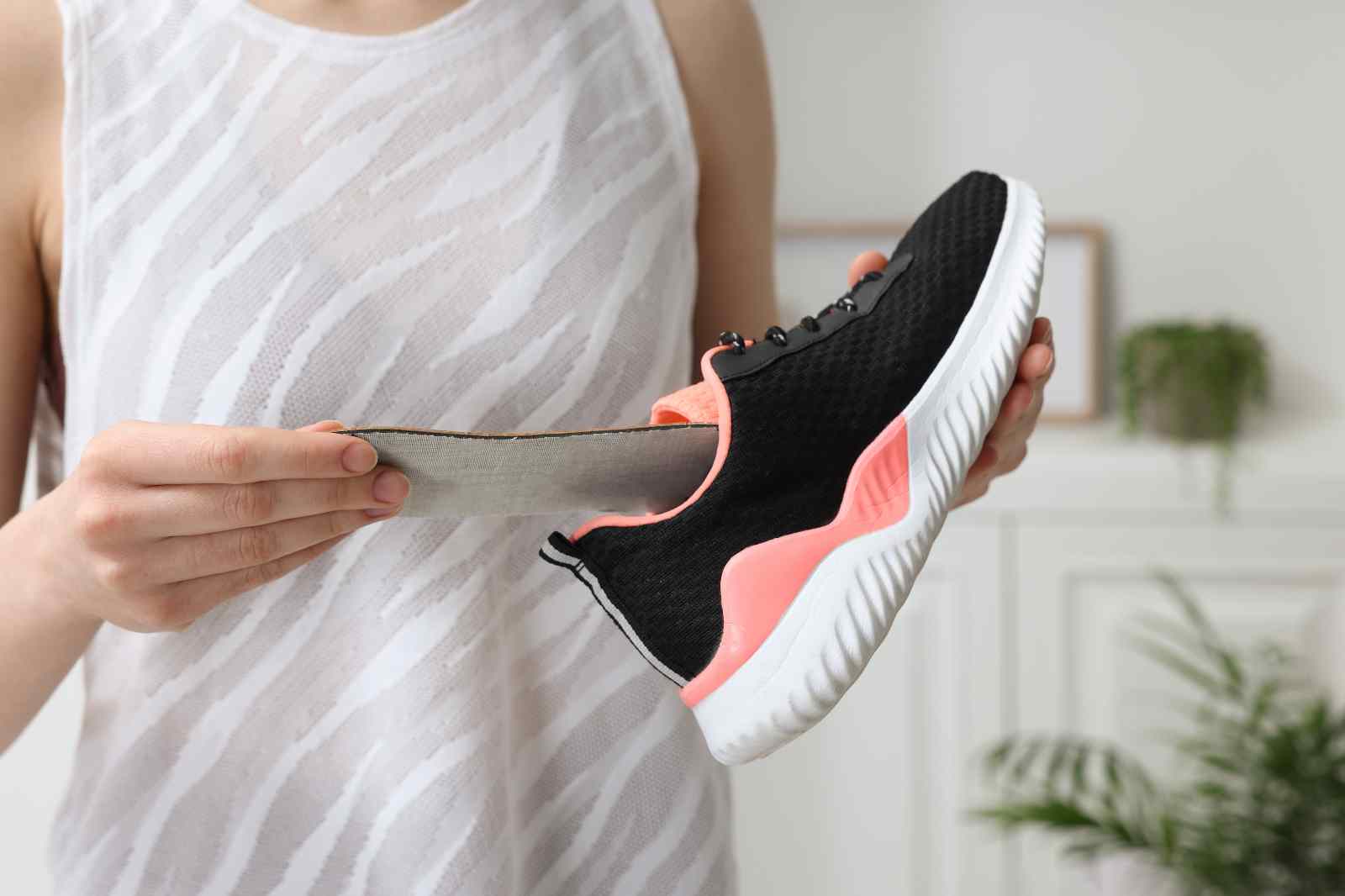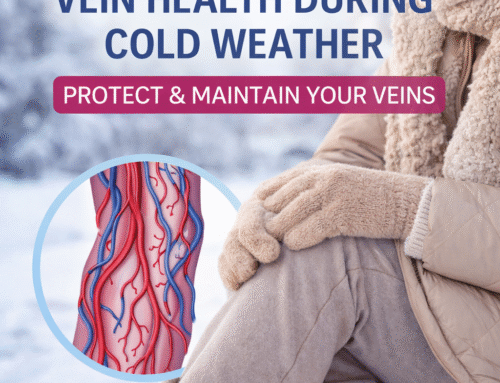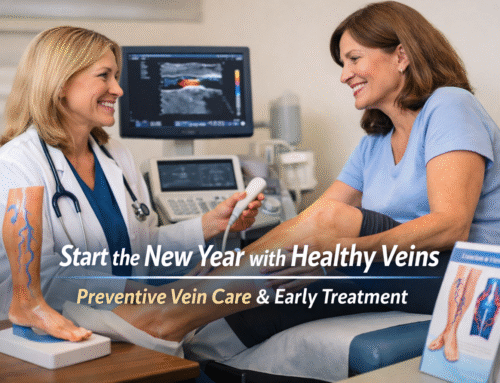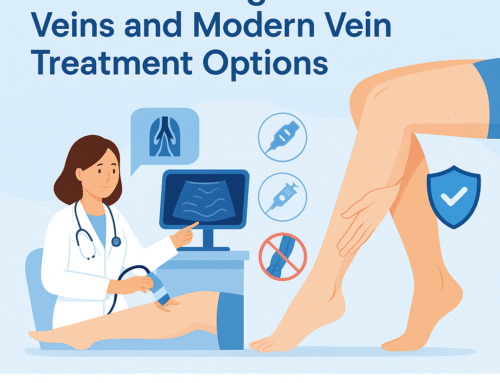Varicose veins and venous insufficiency are common conditions that affect many individuals, particularly those who spend long hours standing or sitting. Selecting the best footwear can play a significant role in managing these conditions. This article explores the best shoes for varicose veins, the impact of footwear on vein health, and provides practical tips for choosing supportive and comfortable shoes that promote better blood circulation.
What are the best shoes for varicose veins?
How do shoes affect vein health?
The shoes we choose to wear can significantly influence our vein health. Footwear that lacks proper support can exacerbate the pressure in the lower legs, potentially worsening the discomfort associated with varicose veins. High heels, for instance, can restrict blood circulation, leading to increased venous pressure and contributing to the development of varicose veins. By contrast, shoes designed for comfort and support can help alleviate these pressures, promoting better blood flow and reducing the risk of developing further vein issues.
What features should I look for in the best footwear for vein care?
When it comes to selecting footwear for vein care, there are several essential features to consider. Look for shoes that provide good arch support, which can help distribute body weight evenly and reduce strain on the veins. A cushioned insole is also vital as it absorbs shock and enhances comfort during prolonged periods of standing or walking. Additionally, shoes with a low heel are preferable, as they minimize the pressure exerted on the lower legs. Breathable materials can further aid in maintaining comfort and preventing excessive moisture, which can exacerbate vein issues.
Are there specific brands known for supporting vein health?
Several brands are recognized for their commitment to creating footwear that supports vein health. Brands like Dansko, Clarks, and Vionic offer a variety of shoes designed with comfort and support in mind, making them suitable for individuals concerned about varicose veins. These brands often incorporate features such as arch support, cushioned insoles, and ergonomic designs specifically aimed at enhancing blood circulation and overall foot health. Investing in quality shoes from these brands can be an essential step in managing varicose veins effectively.
How can choosing the right footwear help manage venous insufficiency?
What types of footwear are good for varicose veins?
Footwear choices greatly influence how well we manage venous insufficiency. Generally, low-heeled shoes, athletic sneakers, and supportive sandals are excellent options for people with varicose veins. These types of shoes provide the necessary support and cushioning to promote blood flow and reduce the discomfort associated with standing or sitting for extended periods. Additionally, orthotic inserts can be added to regular shoes to enhance arch support and overall comfort, making them more suitable for individuals dealing with vein issues.
How do high heels impact venous pressure?
High heels are notorious for their negative impact on vein health. Wearing high-heeled shoes can lead to increased venous pressure in the lower legs, as they force the body weight forward and place undue strain on the calves. This can hinder blood circulation and result in the formation of varicose veins over time. For individuals concerned about vein health, it is advisable to limit the use of high heels and opt for footwear that promotes a more natural foot position, thereby reducing the risk of developing venous insufficiency.
Can proper footwear improve blood circulation?
Yes, proper footwear can significantly improve blood circulation. Shoes that offer adequate arch support and cushioning help to maintain proper alignment and reduce stress on the veins. By providing comfort during movement, these shoes encourage better blood flow, which is essential for preventing and managing venous insufficiency. Furthermore, well-fitted shoes that do not constrict the feet allow for greater mobility and can facilitate the natural pumping action of the legs, aiding in effective blood circulation.
What footwear choices can prevent varicose veins?
How does arch support contribute to vein health?
Arch support plays a crucial role in maintaining vein health. Shoes that provide adequate arch support help to distribute weight evenly across the foot, which can reduce the pressure exerted on the veins in the lower legs. This distribution of weight minimizes the risk of developing varicose veins, as it decreases the strain during activities such as standing or walking. Selecting footwear with proper arch support is essential for individuals looking to prevent vein issues and maintain overall foot health.
What are the best styles of shoes to support blood flow?
Styles of shoes that support blood flow include sneakers, loafers, and sandals designed with comfort in mind. Sneakers, in particular, are excellent for daily wear as they often come equipped with features like cushioning, arch support, and breathable materials that promote circulation. Loafers can also be an excellent option for dressier occasions, provided they offer sufficient support. Sandals with adjustable straps allow for a customized fit, further enhancing comfort and promoting blood flow. Ultimately, the best style will depend on personal preference and the specific needs of an individual with vein issues.
How can I select shoes that are comfortable for standing or sitting?
Selecting shoes that are comfortable for both standing and sitting involves looking for specific features. Prioritize footwear that has ample cushioning and arch support, as this will provide comfort during prolonged periods of inactivity. Shoes with a roomy toe box can prevent discomfort and allow for better blood circulation, especially in the feet. Additionally, choosing shoes made from soft and flexible materials can enhance comfort levels, making it easier to wear them throughout the day, whether standing or sitting. It is also wise to try on new shoes at the end of the day when the feet are slightly swollen, ensuring a better fit.
What are the treatment options for varicose veins and how does footwear play a role?
How does footwear relate to varicose vein treatment?
Footwear is an integral part of the overall approach to treating varicose veins. While medical treatments such as sclerotherapy, laser therapy, and vein surgery are often necessary, wearing the right shoes can provide supportive care that complements these treatments. Comfortable and supportive footwear can alleviate discomfort, promote blood circulation, and reduce the risk of further complications. Consulting with a vein specialist about suitable footwear can be beneficial in developing a comprehensive treatment plan.
Can wearing the right shoes reduce venous pressure?
Wearing the right shoes can indeed reduce venous pressure in the lower legs. Properly fitting footwear with adequate support helps to minimize strain on the veins. By distributing weight evenly and providing cushioning, the right shoes alleviate the excess pressure that can contribute to the worsening of varicose veins. This relief is crucial for those who experience symptoms related to venous insufficiency, as it can lead to improved comfort and overall vein health.
What additional measures can I take alongside choosing the right shoes?
In addition to choosing the right shoes, there are several measures individuals can take to support vein health. Regular exercise, such as walking or swimming, can enhance circulation and reduce the risk of developing varicose veins. Elevating the legs when sitting or lying down can also help improve blood flow and reduce swelling. Maintaining a healthy diet rich in fiber and low in sodium can further support vein health by preventing constipation and reducing water retention. Staying hydrated and avoiding prolonged periods of inactivity are also essential practices for those managing vein issues.
How to care for your feet if you have vein issues?
What daily practices support vein health?
Daily practices that support vein health include maintaining proper foot hygiene and regularly inspecting the feet for any changes or signs of varicose veins. Wearing compression stockings can also be beneficial for individuals with vein issues, as they provide graduated pressure that promotes better blood circulation. Additionally, incorporating leg exercises, such as ankle pumps and calf raises, into daily routines can enhance venous return and reduce discomfort.
How can I improve blood flow and reduce discomfort?
Improving blood flow and reducing discomfort can be achieved through a combination of lifestyle adjustments and proper care. Engaging in regular physical activity, avoiding long periods of inactivity, and incorporating leg elevation into daily routines can all contribute to improved circulation. Additionally, practicing good posture while sitting or standing can minimize venous pressure. Wearing comfortable and supportive footwear is also paramount in maintaining comfort and promoting blood circulation throughout the day.
What role does lifestyle play in managing varicose veins?
Lifestyle choices play a critical role in managing varicose veins. A balanced diet, regular exercise, and maintaining a healthy weight can significantly impact vein health. Avoiding smoking and excessive alcohol consumption can also contribute to better circulation and reduce the risk of developing varicose veins. By making conscious choices in daily life, individuals can effectively manage their symptoms and reduce the likelihood of developing further vein issues. Ultimately, a holistic approach that combines the right footwear with healthy lifestyle practices can lead to better outcomes for those dealing with varicose veins and venous insufficiency.
In conclusion, choosing the right footwear is an essential aspect of managing varicose veins and venous insufficiency. Proper shoes can provide the necessary support, reduce venous pressure, and enhance overall blood circulation, making a noticeable difference in daily comfort and vein health. By focusing on features such as arch support, cushioning, and breathability, individuals can alleviate discomfort and prevent further complications. Additionally, incorporating healthy lifestyle habits alongside wearing supportive shoes can contribute to better management of these conditions. Prioritizing proper footwear is a simple yet effective step toward promoting long-term vein health and comfort.






Leave A Comment